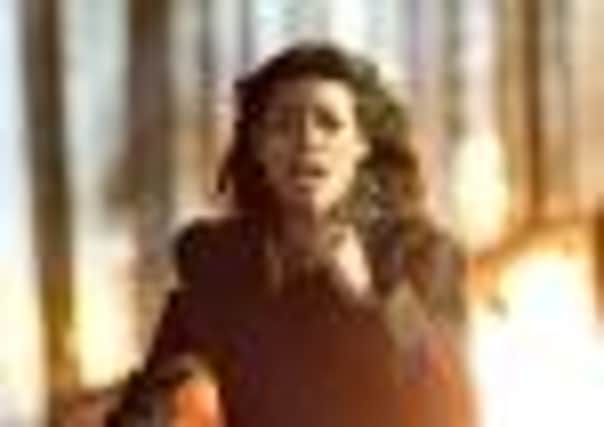Film review: Danny Boyle’s Trance


Trance (15)
Directed by: Danny Boyle
Starring: James Mcavoy, Vincent Cassel, Rosario Dawson, Tuppence Middleton
* *
Based on a 2001 TV movie, it’s a typically full-tilt, high-energy effort, one that kicks off in kinetic fashion with the dazzlingly orchestrated theft of a Goya painting, but rapidly reveals itself to be a film running on empty.
Advertisement
Hide AdThat starts to happen almost from the moment James McAvoy’s inside man, Simon, wakes up in hospital with no memory of what he’s done with the £25 million painting he’s helped Vincent Cassel’s London-based mobster, Franck, swipe. Having been bashed in the head – by Franck – in the midst of the robbery, all he can recall are fragments of the aftermath. Even with Stanley knife-to-the-fingernails pressure from Franck and his goons, the crucial info remains lost in the recesses of his cerebral cortex.
Enter Dr Elizabeth Lamb (Rosario Dawson), a beautiful Harley Street hypnotherapist chosen by Simon to help him shake loose the truth. Looking as if she’s just stepped out of Basic Instinct (a comparison made more striking by an unjustifiable shot of her nether regions in a key scene later in the film), she might as well have “femme fatale” tattooed on her forehead, so blatant is her duplicitous nature, although to be fair, in a well-worn genre such as this, such a lack of subtlety is arguably part of the film’s ruse (there are certainly reversals later that cast everything in this set-up in doubt).
The problem is that the central plot thread just isn’t executed in a particularly interesting fashion. With the majority of the film focused on Elizabeth, Franck and Simon’s efforts to break into the latter’s mind as he’s put in a trance-like state, Boyle – working from a screenplay by former regular collaborator John Hodge – goes to great lengths to deliver a series of increasingly convoluted plot twists designed to replicate the jumbled-up nature of the human mind. Fears and fantasies are repeatedly evoked in ways that are supposed to leave us doubting the veracity of anything on screen.
The unreliable nature of the narrative, though, feels more like a vice than a virtue – a way to distract from the fact there’s a big revelation on the horizon instead of actively encouraging us to keep pace with the film as its myriad plot threads are untangled.
It doesn’t help that Trance is horribly written and acted. Stiffly delivering Hodge’s terrible dialogue, McAvoy seems more out of his depth than his character, as if he’s accidentally stumbled into a dodgy erotic thriller (which he kind of has). Dawson, meanwhile, is subjected to the most bizarre plot twist in the movie, one that involves her character shaving her pubic hair for a gratuitous crotch shot that the film then cheekily attempts to justify on artistic grounds by literally relating it to an artistic movement with which Simon has become obsessed.
It’s a strange development, but perhaps in keeping with a film in which none of the characters relate to one another in ways that are recognisably human. Even taking into consideration film’s heightened reality – a product of Boyle’s decision to transform London into a modish, minimalist cityscape full of rooftop swimming pools and high-stakes poker games – that makes it tough to stay interested in their fates.
Advertisement
Hide AdThat they’re so dislikeable proves problematic too, although likeability shouldn’t be a deal-breaker in any film if properly conceived. The central trio in Shallow Grave, for instance, were a thoroughly hateful bunch from the off. That film, however, had a moral dilemma at its core that made it easy to invest in the story and its outcome. Trance doesn’t. Nor does it have any of the emotional resonance that made Christopher Nolan’s similarly themed Memento and Inception such compelling brain-benders. The characters in Trance are one-dimensional constructs; there to keep the plot moving and nothing else.
That’s too bad, because the film’s pounding energy and momentum does initially echo the brash, breezy, let’s-have-it attitude of Shallow Grave and Trainspotting, which is never a bad thing. Alas, it also makes the film feel like a regression for Boyle, especially in the context of a forward-thinking career in which he has frequently proved that he can take esoteric scenarios and transform them into stylish and engaging films. The unfortunate effect of Trance, though, is to dredge up memories of all the moments of stylistic excess that didn’t quite work in movies such as A Life Less Ordinary and The Beach.
It’s perhaps a small consolation that the failure of those films did kick-start the next phase of his brilliant career. Perhaps Trance will do the same.